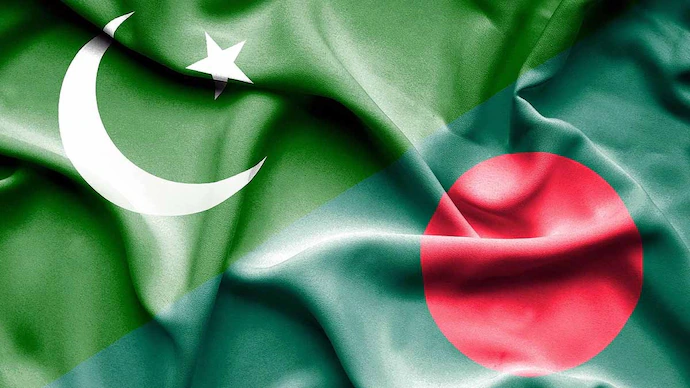Bangladesh is set to form a new trade and investment commission with Pakistan as part of efforts to reduce the bilateral trade gap and boost cooperation in key sectors.
Commerce Adviser Sk Bashir Uddin announced the move on Thursday after a meeting with Pakistan’s Commerce Minister Jam Kamal Khan at the Bangladesh Secretariat. He said discussions also covered the reactivation of the long-dormant Bangladesh-Pakistan Joint Economic Commission (JEC).
“We are working to revive the JEC, which has been inactive for more than 15 years, and to establish a new trade and investment commission to enhance bilateral trade and investment,” the adviser said.
Duty withdrawal, tea quota reinstatement
Bangladesh pressed Pakistan to withdraw anti-dumping duties imposed on hydrogen peroxide imports from Bangladesh, which local chemical exporters say have hindered trade for years. According to three industry representatives, Islamabad also maintains quotas on several Bangladeshi exports.
Bashir said Dhaka had sought reinstatement of a 10-million-kg duty-free quota for tea exports to Pakistan. “We once enjoyed this facility, and we have requested that it be restored,” he added.
New areas of cooperation
Beyond chemicals and tea, Bangladesh sought Pakistan’s support in developing its leather and sugar industries and called for exploring joint ventures in intermediate goods.
“If Bangladesh and Pakistan can jointly produce intermediate goods, or do so with foreign investment, both countries will benefit,” Bashir noted.
He pointed out that Bangladesh imports around $80 billion worth of goods annually, including $15 billion in food and intermediate products. “There is ample opportunity to expand the trade of these products between the two countries. That is why the new commission is being formed,” he said.
Food and agricultural trade
The two sides also discussed agricultural cooperation, mutual recognition of certificates, and imports of food, fruits, stones, and minerals from Pakistan at competitive prices. Wheat remains Bangladesh’s main import from Pakistan.
“The Pakistani delegation responded positively to all our proposals, which will now be further discussed in the new commission,” Bashir said.
When asked whether Dhaka was leaning towards Pakistan, he responded: “We are leaning towards everyone — Pakistan, the United States, and even India, from where we are importing onions. Bangladesh’s interest comes first.”






